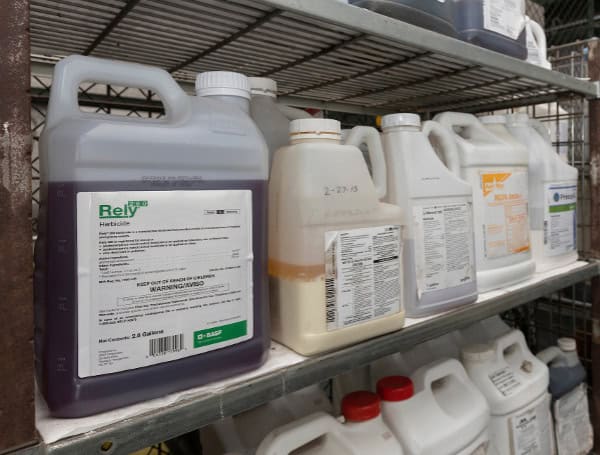The United States Environmental Protection Agency (EPA) has issued an emergency order suspending all use of dimethyl tetrachloroterephthalate (DCPA), a pesticide also known as Dacthal. Effective Aug. 7, DCPA may not be sold, distributed or used in any manner. Consumers with current stocks of the product cannot use it.
DCPA exposure in pregnant women can cause thyroid level changes in their unborn babies, according to an EPA press release. These changes are linked to low birth weight, impaired brain development, decreased IQ and impaired motor skills later in life.
Read: UF Study Sheds Light On Challenges, Recommendations Of Managing Urban Trees And Storms
This is the first time in 40 years the EPA has taken this type of emergency action.
Brett Bultemeier, an Extension assistant professor with the UF/IFAS Pesticide Information Office, answers common questions about DCPA.
Q. What is DCPA/Dacthal?
A. Dacthal is a pesticide used to control weeds in agricultural and non-agricultural settings. The following products contain DCPA and are affected by the EPA’s order:
- Dacthal Flowable Herbicide (EPA Reg. No. 5481-487), the only product registered for use in Florida.
- Dacthal W-75 Herbicide (EPA Reg. No. WI050002), an older formulation possibly contained within some chemical storage facilities.
- Technical Chlorthal Dimethyl (EPA Reg. No. 54851-495), a technical-grade material primarily used to formulate DCPA. Possibly found in some research labs.
Q. What are the restrictions?
A. Any product containing DCPA cannot be sold, distributed or used. All remaining product in storage may not be used. Effective Aug. 7, any use of DCPA would constitute misuse and thereby be illegal.
Read: Agricultural Safety Center, UF/IFAS Release Heat-Related Illness Toolkit
Q. What is the recommended method of disposing of DCPA?
A. Follow label instructions to keep all products securely stored and ensure they are clearly marked “Not for Use.”
Operation Cleansweep, a Florida Department of Environmental Protection program that provides hazardous waste collection, accepts DCPA.
Additional guidance from the EPA regarding the agency’s collection of existing DCPA stock is expected. Watch for updates.
Q. Do I need to keep any records regarding my possession of DCPA?
A. The EPA does not classify DCPA products as restricted-use products (RUP), so a record-keeping requirement does not exist for non-agricultural uses. Regarding agricultural use, the EPA requires recordkeeping for two years to adhere to worker protection standards. For now, however, the Pesticide Information Office advises maintaining any existing records related to any DCPA use.
Q. What is UF/IFAS doing?
A. UF/IFAS is notifying all units that may use or provide herbicide consultation to other users about the status of DCPA. In addition, UF/IFAS is updating all Extension documents and other materials to reflect the change and to prevent further use of the product.
For more information about UF/IFAS actions and other pesticide regulatory questions, contact the Pesticide Information Office. The office blog also provides information about pesticide use and issues.
Q. Where can I learn more?
A. An EPA press release provides additional information about the agency’s emergency DCPA order.
Please make a small donation to the Tampa Free Press to help sustain independent journalism. Your contribution enables us to continue delivering high-quality, local, and national news coverage.
Android Users: Download our free app to stay up-to-date on the latest news.
Connect with us: Follow the Tampa Free Press on Facebook and Twitter for breaking news and updates.
Sign up: Subscribe to our free newsletter for a curated selection of top stories delivered straight to your inbox.


